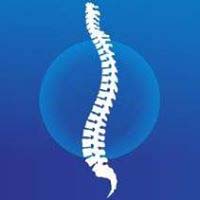.
Pamela Stone-McCoy DACCP, DC & Sarah Friedrich DC
Annals of Vertebral Subluxation Research ~ February 27, 2020 ~ Pages 26-32
.
Abstract
Objective: To report on the outcomes following chiropractic intervention in a canine suffering from cauda equine syndrome secondary to disc herniation.
Clinical Feature: The patient was a 7-year-old Dachshund canine that was experiencing a decrease in appetite, defecation issues, decreased reflexes in his hind legs, and could not do a full body shake. Imaging confirmed an L1/L2 disc herniation.
Interventions and Outcomes: Diversified technique was utilized and over the course of two visits, the patient’s symptomatology was alleviated, indicated by the return of hind leg reflexes, appetite, bladder and bowel control and full body shake.
Conclusion: This case report provides supporting evidence that conservative chiropractic adjustment to subluxations can be beneficial to canines suffering from symptomatic lumbar disc herniation and cauda equine syndrome.
Key Indexing terms: disc herniation, dogs, chiropractic, canine, spinal injury, motion palpation, chondrodystrophoids, adjustment, vertebral subluxation








